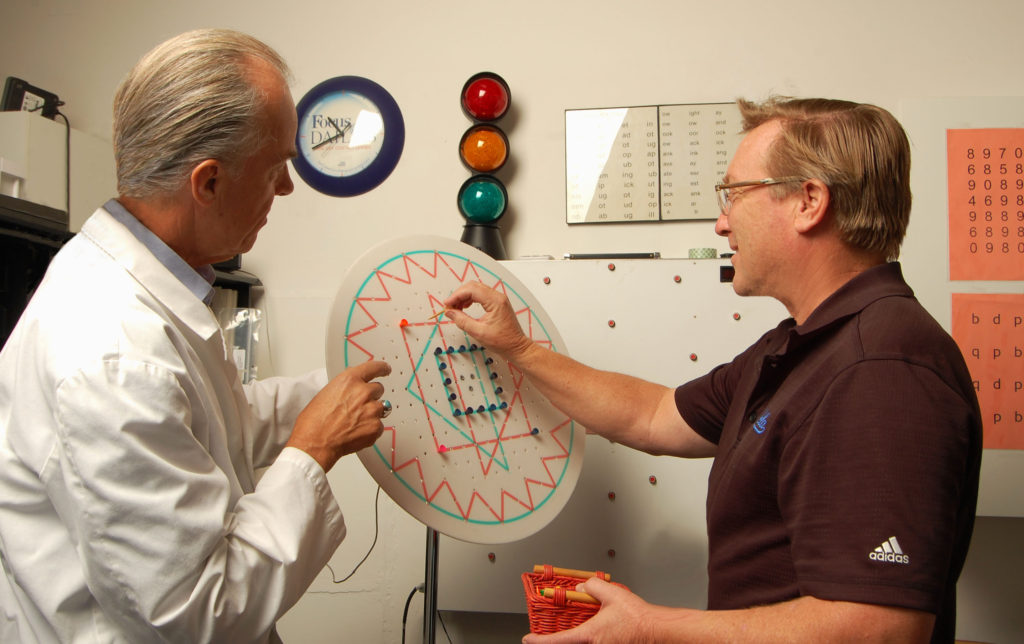Do I need Vision Therapy?
Most people know that having 20/20 vision is a good thing. Most schools and doctors are also under the impression that if you have 20/20 vision…“your eyes cannot be part of the problem.” This could not be further from the truth. This popular misconception has caused countless children and adults to struggle needlessly against correctable, but “hidden”, visual handicaps.
We tend to take it for granted, but the act of reading requires an incredible degree of precision in the way the eyes must follow each other along a line of print. They dance across the page like Fred Astaire and Ginger Rogers, gliding effortlessly from one word to the next. As in dancing, some of us are not as gifted as others. But, just as anyone can learn to dance, with Optometric Vision Therapy, tracking and focus skills can be improved.
Sometimes, the mind’s visual-processing “software” may be incomplete or disorganized. This can cause a host of problems, including an inability to to easily “visualize” things that are read or form mental pictures. Another is visual-spatial processing disorder. This causes poor laterality awareness and the ability to differentiate RIGHT from LEFT and leads to letter and number reversals and problems with math, following instructions and organizing written work on the page. Visual-motor skills can be deficient and lead to eye-hand coordination problems, poor handwriting and difficulty playing sports. Collectively these are referred to as visual-perceptual problems and very treatable with vision therapy.
The person with uncorrected functional visual problems, like the ones mentioned here, is prevented from reading and learning in a normal, efficient fashion and is therefore unable to demonstrate their full intelligence. No amount of tutoring or “extra effort” is going to change this. It only creates more frustration and can, over time, lead to feelings of resentment and poor self-esteem.
“My son wore glasses for 5 years before I found out that they were not totally correcting his vision problem.” C. Smith
As crucial as proper visual skills are in scholastic performance, there is no screening for these functional vision problems in the educational system. Because of this, many students in special resource classes, being treated for A.D.D or A.D.H.D., or labled as having specific reading disability or dyslexia have been misdiagnosed. Many actually have correctable visual problems underlying their observable symptoms. If so, they can be effectively “cured” of these problems rather than singled out special help or medicated to work around them.
The importance of this cannot be overemphasized. Unless one has had a thorough, functional visual workup by a doctor who is specially trained to recognize and treat these problems with vision therapy, the chances of misdiagnosis are high!


